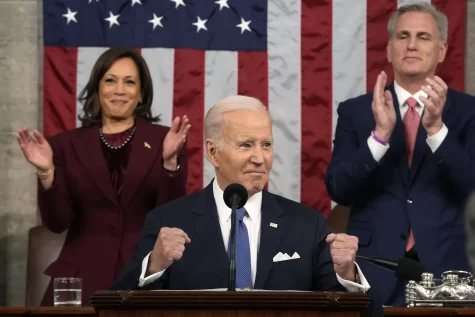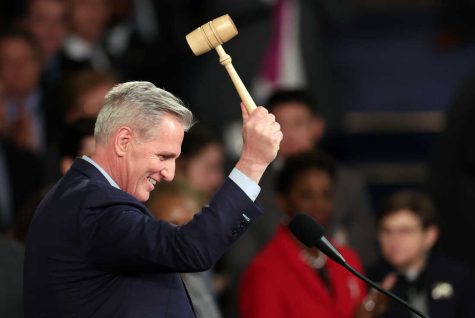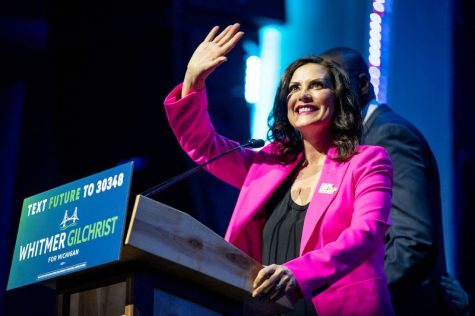OU faculty strike impacts other universities
The faculty strike at Oakland University affected not only OU, but also other universities in Michigan, and in the nation.
The work stoppage from Sept. 3 to Sept. 9 that canceled the first four days of classes was covered by local media and national media. News also spread through word of mouth.
The strike was called because the contracts of about 600 faculty members represented by OU’s chapter of the American Association of University Professors (not including special lecturers) expired this summer, and although OU and AAUP had been collectively bargaining since May, they didn’t reach an agreement in time.
During the strike, representatives of faculty unions at some universities, including Wayne State University and Eastern Michigan University, came to the rallies and picket lines at OU to support OU’s faculty.
Joel Russell, president of OU’s AAUP and chemistry professor, said he was very appreciative of the support from the other unions.
Howard Bunsis, EMU professor of accounting and chair of EMU’s AAUP bargaining team, came to OU during the strike.
He said he was encouraged “mostly because the faculty at OU stood up for quality education, stood up for students, and insisted that the administration hire quality faculty, insisted the administration devote [a larger portion of its] budget to academics.”
He said he is also glad they were able to reach a compromise on health care, and that it was a “huge victory” that OU’s AAUP was able to guarantee hiring tenure-track faculty instead of adjunct instructors.
EMU’s AAUP is getting ready to go into bargaining because its contract expires in summer 2010.
He said OU’s faculty strike and the subsequent tentative agreement not only had an impact on EMU and other regional schools, but also had a national impact.
“It shows the faculty can stand up for principles even in these tough economic times,” Bunsis said. “We were proud of our OU colleagues, of how they stood up to the administration, stood up for the students … and of how strong the student support was.”
On its website, EMU’s AAUP said university administrations are using the financial exigency as a way to limit faculty rights, governance and cutting programs without faculty input.
For contract negotiations at EMU next year, Bunsis said he’d like to “make sure the administration is dedicated to the core mission of the university.”
Jeff Lee, executive director of the Michigan Conference of AAUP, said he was encouraged that OU’s faculty stuck together, and disappointed that OU’s administration let it go so far that classes had to be canceled.
He said the only public universities in Michigan whose faculty aren’t unionized are University of Michigan, Michigan State University and Michigan Tech University. He said most faculty unions in Michigan were formed in the 1970s, and didn’t know why the three universities didn’t pursue it.
“Faculty unions usually come about when the administration does dreadful things,” Russell said, adding that he thinks the administrations in MSU and UM are more appreciative of its faculty.
Russell said that OU’s faculty union tentatively agreeing on a zero percent raise this year showed that faculty governance and academics were the issues they were holding out for, and not money.
In comparison, Northern Michigan University and WSU, whose faculty unions bargained contracts this summer, both got a 2 percent raise.
OU’s AAUP said the tentative agreement gives a 1 percent raise in 2010 and a 3 percent raise in 2011.
OU administration declined to confirm or deny the details released by AAUP because the contract hasn’t been voted on or ratified by the faculty yet.
AAUP held a meeting Monday, Sept. 21 to inform the faculty of the changes in the tentative agreement, and will hold another at noon Thursday in the Oakland Center’s Gold Rooms. After that, a vote will be called, but not for at least another seven days.
“We cannot hold the election until we receive the current faculty list from the administration,” said grievance officer of OU’s AAUP and management professor Lizabeth Barclay. “We should receive this list on September 30. If we get it on time, we’ll be able to schedule the election early in October.











